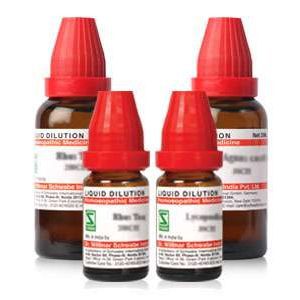
The Impact Of Covid-19 On Heart Health
- Dr. Aditi Sharma
- December 2, 2022
- No Comments

The pandemic of COVID-19 brought the world down to its knees. Primarily a respiratory illness, severe COVID-19 involves other vital organs such as the heart, brain, liver, gastrointestinal system and kidneys. Through this article, we will know the impact of COVID-19, especially on heart health, and ways to improve it.
How does COVID-19 impact heart health?
COVID-19 is seen to have an adverse impact on the heart and circulatory system. It can also cause serious complications in people suffering from cardiac illness before getting a COVID-19 infection.
These heart problems caused by COVID-19 have been linked to the ability of the coronavirus to damage the endothelial cells which line the blood vessels in the body. Damage to these endothelial cells can cause increased blood clotting, leakage in blood vessels and reduced supply to different parts of the body including the heart.
What are the various heart problems caused due to COVID-19 infection?
The various cardiovascular diseases associated with COVID-19 infection are: –
1. Palpitations or increased heart rate
As a response to the fever and inflammation caused by COVID-19, the heart has to pump more blood throughout the body to fight the infection. For this, the heart has to work harder, leading to increased heart rate or palpitations. The palpitations can also be due to anxiety, dehydration, medications, and other health problems. Many researchers think that the increased heart rate after COVID-19 is due to the action of the immune system on the autonomic nervous system which in turn controls the heart rate, blood pressure and breathing rate.
2. Blood clots
Depending on their site, they can cause severe problems such as clots in the pulmonary blood vessels, deep vein thrombosis, stroke and heart attack.
3. Lack of enough nutrients and oxygen to the heart
As the heart has to function harder in response to inflammation caused by COVID-19, it requires more oxygen and nutrients to perform an increased function. However, coronavirus affects the lungs and the pulmonary blood vessels resulting in clots. This limits the oxygen and nutrients supply to the heart. This can damage the heart muscle leading to heart failure and death eventually.
4. Inflammation of the heart lining and heart muscles
COVID 19 like many other viral diseases can cause inflammation of the heart lining or pericarditis, and heart muscle or myocarditis, especially in severely ill people. This is due to the overreaction of the body’s immune system against the infection.
5. Takotsubo or broken heart syndrome
In this condition, the left chamber of the heart rapidly becomes large with weak heart muscles so the heart is unable to pump the required amount of blood throughout the body. It mainly occurs due to emotional factors or stress, and in many cases, the heart recovers.
Also Read Omicron Bf.7 In India: The Symptoms, Transmission & Precautions
What are the various cardiac signs and symptoms due to Covid-19?
The cardiac signs and symptoms due to COVID-19 are: –
- Abnormal heart rhythms
- Pain or discomfort in the neck, jaw, arms, stomach, and back
- Pain, tightness, pressure or squeezing sensation in the chest region that does not pass away even after a few minutes, or may stop and then come back.
- Shortness of breath
- Nausea
- Lightheadedness
- Cold sweat
How to improve heart health?
There are certain steps to improve heart health such as
- Diet- Eat more vegetables, fruits, low-fat dairy, whole grains, beans, nuts, lean meats, fatty fish and skinless poultry. Restrict intake of trans and saturated fats, added sugar and salt.
- Exercise– 30 minutes of aerobic exercise for most days in a week has been found to be helpful. However, if one has not exercised in a long time or is new to it, one should start and proceed gradually.
- Regular check up- At least once a year it is recommended to go for a full health check-up to ensure one has not developed any risk factor for cardiac disease, and also to ensure one is having better control of any such existing risk factor.
- Keep a check on your blood cholesterol, blood sugar, and blood pressure.
- Don’t stop any medication for any cholesterol, blood pressure or diabetes without referring to a doctor.
- Reduce salt intake– As most salt is present in packaged and processed food, try to eat home-cooked food. Try to have less than 2,300 mg in a day and 1,500 mg per day for those who have hypertension.
- Limit intake of alcohol– Men should have only two drinks in a day and women should have only one drink in a day. One drink measures 12 ounces of beer and 4 ounces of wine.
- Avoid smoking and also avoid passive smoking which is equally injurious to the heart.
- Maintain optimum body weight.
- Manage stress– For this, exercise, relax for at least 15 minutes, pursue a hobby, stay in touch with friends and family, and take adequate sleep.
Also Read Heart Diseases - Warning Signs and Symptoms
What is the role of homeopathy in improving heart health?
Along with the right diet and regimen, homeopathy is quite effective in the treatment of heart problems. By treating conditions such as high blood pressure, diabetes, high cholesterol, and coronary artery disease that adversely affects the heart, homeopathic medicines can help prevent heart problems. There are some homeopathic medicines that specifically act on the heart, and help to improve signs and symptoms of heart failure, thus improving the quality of life.
Dr Willmar Schwabe’s Essentia Aurea is specially formulated to improve heart health in a safe and effective way. It consists of a combination of medicines such as Arnica Montana, Aurum muriaticum, Convallaria majalis, Crataegus oxyacantha and Ignatia amara. These medicines tone the heart muscle, regulate the heart rate, reduce anxiety, and normalize blood pressure. It even helps to remove plaques and arterial deposits, to allow smooth blood flow to the heart muscles.
-
 Dr Willmar Schwabe India Ignatia amara CHSale Product on sale
Dr Willmar Schwabe India Ignatia amara CHSale Product on sale₹105.00₹86.10Rated 5.00 out of 5 based on 1 customer rating -
 Dr Willmar Schwabe India Crataegus oxyacantha CHSale Product on sale
Dr Willmar Schwabe India Crataegus oxyacantha CHSale Product on sale₹105.00₹86.10Rated 5.00 out of 5 based on 1 customer rating -
 Dr Willmar Schwabe India Convallaria majalis CHSale Product on sale
Dr Willmar Schwabe India Convallaria majalis CHSale Product on sale₹105.00₹86.10 -
 Dr Willmar Schwabe India Aurum muriaticum CHSale Product on sale
Dr Willmar Schwabe India Aurum muriaticum CHSale Product on sale₹105.00₹86.10 -
 Dr Willmar Schwabe India Arnica montana CHSale Product on sale
Dr Willmar Schwabe India Arnica montana CHSale Product on sale₹105.00₹86.10 -
 Dr Willmar Schwabe India Essentia aureaSale Product on sale
Dr Willmar Schwabe India Essentia aureaSale Product on sale₹210.00₹172.20Rated 5.00 out of 5 based on 5 customer ratings
CONCLUSION
An increase has been seen in the number of patients with cardiac illnesses after covid-19 infection. This is due to the direct effect of coronavirus on the heart and also the overreaction of the immune response against the virus. In addition, the anxiety and fear produced by the pandemic condition have made the matter worse.
Palpitation, discomfort in the neck, jaw, arms, stomach, and back, pain or squeezing sensation in the chest region that does not pass away even after a few minutes, shortness of breath, nausea, lightheadedness, and cold sweat are prominent signs and symptoms of heart problems.
In order to prevent and manage heart diseases, certain lifestyle changes have been found to be helpful. These include having a healthy diet, restricting alcohol, salt and sugar intake, managing stress, and doing at least 30 minutes of aerobic exercise a day, for most days of the week.
Also avoiding active and passive smoking, managing weight and going for regular health examinations to keep a check on factors such as hypertension, diabetes and high cholesterol that adversely affect the heart, may also prove to be effective.
Homeopathy has a significant role to play in the treatment and prevention of cardiac problems. It is advisable to consult a homeopathic physician for the treatment of cardiac problems instead of opting for self-medication at home.



































